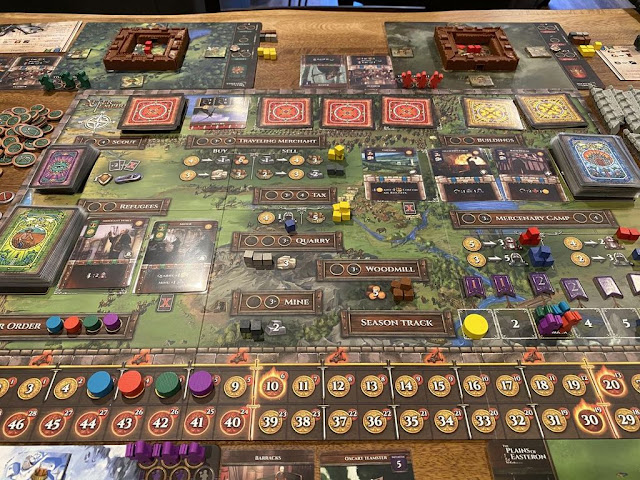After the Empire Free Download 2023
After the Empire:
Introduction:
Empire, a turn-based wargame from 1977, boasts straightforward rules. The game's inception traces back to Walter Bright, who began conceptualizing it in 1971, drawing inspiration from war movies and board games like Battle of Britain and Risk. Over time, the game underwent porting to numerous platforms during the 1970s and 1980s. Various commercial versions emerged, often augmenting the original text-based interface with basic graphics. The core gameplay evokes resemblance to subsequent titles like Civilization, which drew some influence from Empire.
At the onset of a new game, a random map is generated on a square grid. This map typically features multiple islands, although different algorithms in various versions produce diverse map styles. Scattered across the land are several cities, with each player controlling one at the game's start. The immediate vicinity of the city is visible, while the rest of the world map remains concealed.
Empire Deluxe
Players can instruct cities to produce armies, aircraft, and different types of ships. Units take a specific number of turns to be generated, with armies being the quickest. Players maneuver these units across the map to explore the world, revealing the land within a one-square radius around each unit. As they explore, they discover other cities, often initially independent, which can be captured using their armies. Captured cities are then repurposed to produce additional units.
As players' collection of cities expands, they can allocate some to produce more time-intensive units like battleships. Ultimately, they must employ these forces to conquer all cities on the map, including those controlled by other players, often managed by the game's AI.
History And Development:
Empire was originally conceived by Walter Bright during his childhood as a board wargame, influenced by Risk, Stratego, and the film Battle of Britain. After realizing the potential for computer-based gameplay, he developed the initial version in BASIC before re-writing it in FORTRAN for the PDP-10 computer at Caltech in 1977. This version spread to other PDP-10s and eventually was commercially available after being recoded in assembly language for the Heathkit H11.
Empire's source code for the FORTRAN/PDP-10 version was pilfered from Caltech's security systems, leading to various modifications and adaptations. It was eventually found by Herb Jacobs and Dave Mitton, who further propagated it. The game was ported to various systems, including by Bob Norby and Chuck Simmons.
In 1996, Computer Gaming World ranked the original Empire as the 8th-best computer game ever released. The game's legacy led to various adaptations and versions, including Empire Deluxe, which sustained the gameplay while introducing improvements. The game enjoyed commercial success and acclaim, ultimately becoming one of Gamespy's Greatest Games of All Time.
Empire Deluxe Scenarios, an expansion pack, added further content and scenarios to the game. Its success continued with positive reviews and recognition from the gaming community.
Key Features of Empire:
- Turn-Based Strategy: Empire offers a turn-based gameplay style that allows players to strategize and make decisions at their own pace.
- Randomly Generated Maps: Each game begins with a unique map generated randomly, providing variety in gameplay and challenges.
- City Management: Players control cities, overseeing production and deciding what types of units to create.
- Exploration and Conquest: The game revolves around exploring the world, discovering and capturing other cities to expand your empire.
- Strategic Depth: With a focus on decision-making and tactical planning, Empire provides players with strategic depth and engaging gameplay.


.jpeg)
.jpg)

Comments
Post a Comment